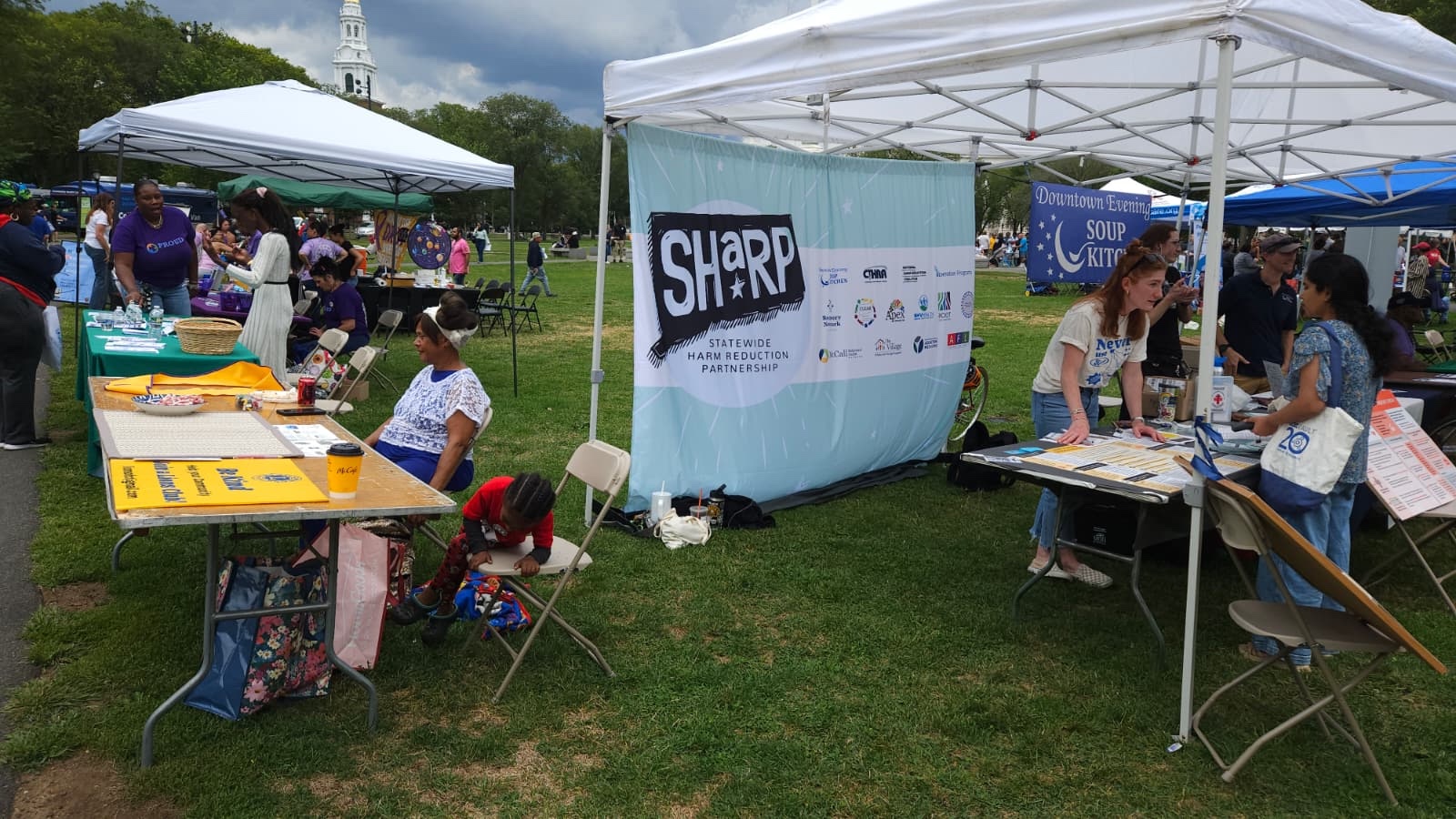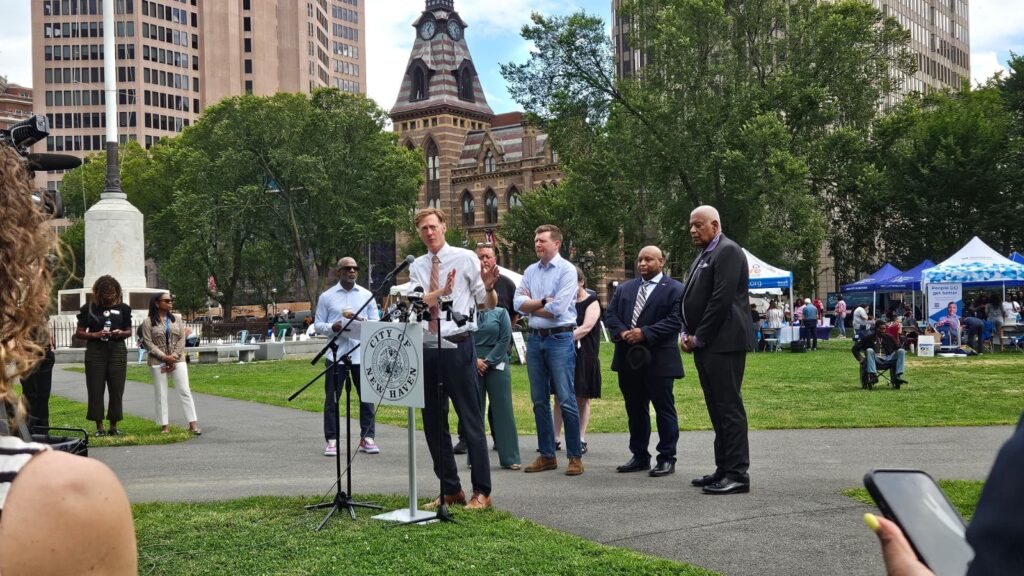Organizations gather on the Green to call attention to opioid overdoses
Representatives from over 25 organizations gathered on the New Haven Green to raise awareness for drug overdoses and commemorate people lost in the opioid crisis.

Michelle So, Contributing Photographer
As Fiona Firine, the president and co-founder of For Cameron, explained the origin of her nonprofit organization, she handed visitors to her booth on the New Haven Green purple ribbons joined neatly with golden safety pins — symbols of solidarity for drug overdose awareness.
Firine and the other women at the table had lost loved ones due to the opioid crisis. After being prescribed opioids after a football injury at age 12, Firine’s son, Cameron, struggled for decades before coming clean. He was studying to become a recovery coach at Gateway Community College but relapsed. Cameron died in 2018, at age 27, from a fentanyl pressed pill.
“Even though we’re a very shy family, we decided we needed to go public, because if this could happen to us, it could happen to anybody,” Firine said.
For Cameron and over 25 other organizations filled the Chapel Street and Church Street corner of the Green on Friday with tents and loud music for a public health and wellness fair.
The annual observance of International Overdose Awareness Day, organized by Cornell-Scott Hill Health Center and the New Haven Health Department, united under the theme “One Big Family, Driven by Hope.” Before International Overdose Awareness Day fell on Sunday, health care professionals, family members and resource officers aimed to destigmatize drug users and remember those who were lost in the drug crisis.
At 1:15 p.m., an hour into the event, Mayor Justin Elicker offered remarks, along with Connecticut Comptroller Sean Scanlon, New Haven public health director Maritza Bond and others.
“I think every one of us knows at least one person that is struggling with substance use disorder, with addiction right now, and it is tragic to see the number of people that we have lost in our community over the years,” Elicker said.

Elicker went on to praise New Haven’s drug response program, police training and New Haven Free Public Library staffers — who he said “have used Narcan to save people’s lives in the library.”
Scanlon, following Elicker, nodded to the federal cuts to Medicaid, calling the program “the single largest insurer in the United States of America for treating people with mental illness and substance-use disorder.”
Under a Cornell-Scott Hill Health Center tent, Melissa Zuppardi stretched across a multicolored array of yoga mats. She has worked with the health center for over 16 years and recently became the assistant program director for its new Recovery and Wellness Center.
“This has affected my life, between friends, family, loved ones in many different areas, since the 2000s, and prescription pain medications were kind of driving up overdose rates and substance use disorders,” Zuppardi said. “So I got into this field just by having a lot of friends who used and I professionally and personally lost multiple people.”
The Recovery and Wellness Center offers over 50 beds to recovering addicts and provides services including dental care, recovery coaches and psychiatric services.
Zuppardi said her goal is to humanize drug treatment and make sure people who are using drugs understand that the goal of many treatment facilities is to help, not to scold.
“We need to reduce shame and stigma so people are able to come forward and ask for help,” Zuppardi said.
Under another tent, Kathy Eggert, the director of the APT Foundation, oversaw her staff and volunteers taking people’s blood pressures, training people on proper needle usage and passing out flyers and snacks. They also handed out naloxone, an opioid overdose reversal drug.
“One of my passions is really combating against stigma,” Eggert told the News.
“For me, what’s always exciting is if a patient that’s moved on from our facility comes and says hi,” she added.
As Connecticut and the rest of the United States continue to battle the opioid crisis, many, like Firine, still grieve those who were lost, but are determined to change the future of the drug epidemic.
“If we had used the COVID model and we had put out public messaging, we would have saved a lot of lives, because people don’t realize it’s a disease,” Firine said.
Cornell Scott-Hill Health Center is located at 400 Columbus Ave.







